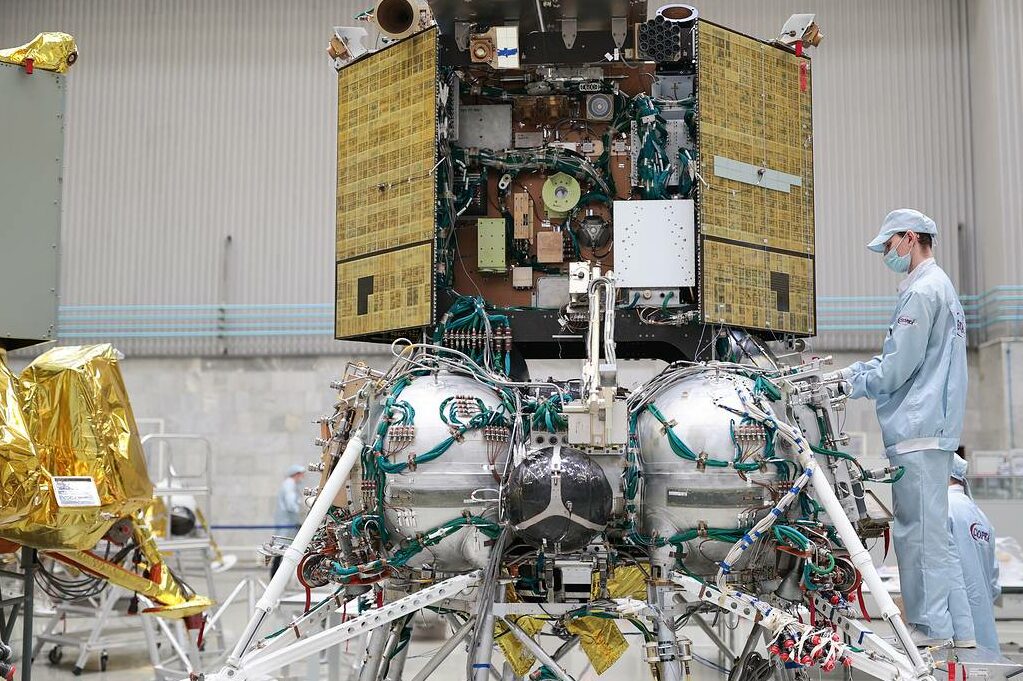With the thunderous roar of engines and an exultant blaze of ambition, Russia’s Luna-25 probe took to the skies on Friday, marking the nation’s valiant return to lunar exploration. This maiden moon mission in almost half a century is not just a testament to Russian technological prowess but a strategic move to resurrect a space sector that has long stagnated, hampered by sanctions and overshadowed by the political turmoil in Ukraine.
In 1976, under the banner of the USSR, Moscow pioneered cosmic exploration, touching the stars with its groundbreaking missions. The launch of Luna-25 brings back the glory days, rekindling a sense of pride and positioning Russia firmly on the space exploration map once again.
According to live coverage from Vostochny Cosmodrome, the rocket soared into the dark skies at 02:10 am Moscow time, destined for the lunar south pole – an unexplored territory. “We’re treading where no one else dared. It’s an achievement that transcends politics,” said Alexander Blokhin, a senior Roscosmos official.
Also read: Luna-25: A New Chapter in Russian Lunar Exploration Sets the Stage for Village Evacuation
The spacecraft’s week-long journey will culminate in a landing that could take place around August 21. Tasked with collecting and analyzing soil samples, the probe’s success could pave the way for future missions.
While the West turns its back on Russia, the nation’s lunar programme thrives despite sanctions and the loss of international partnerships. The first endeavor of its kind in post-Soviet Russia, this mission is seen as “of great importance” by space expert Vitali Iegorov.
President Putin himself has echoed the legacy of Russia’s space pioneers, firmly asserting the nation’s resilience and ambition. The determination to advance, despite political and economic obstacles, is a theme that resonates throughout the entire mission.
But the path isn’t entirely free from turbulence. The Russian space sector, grappling with funding constraints, corruption scandals, and fierce competition from U.S., China, and private players like SpaceX, has pinned high hopes on the Luna-25.
Is this bold venture a new dawn for Russian space exploration, or a final blaze of glory? Only time will tell.
Source: The Star










